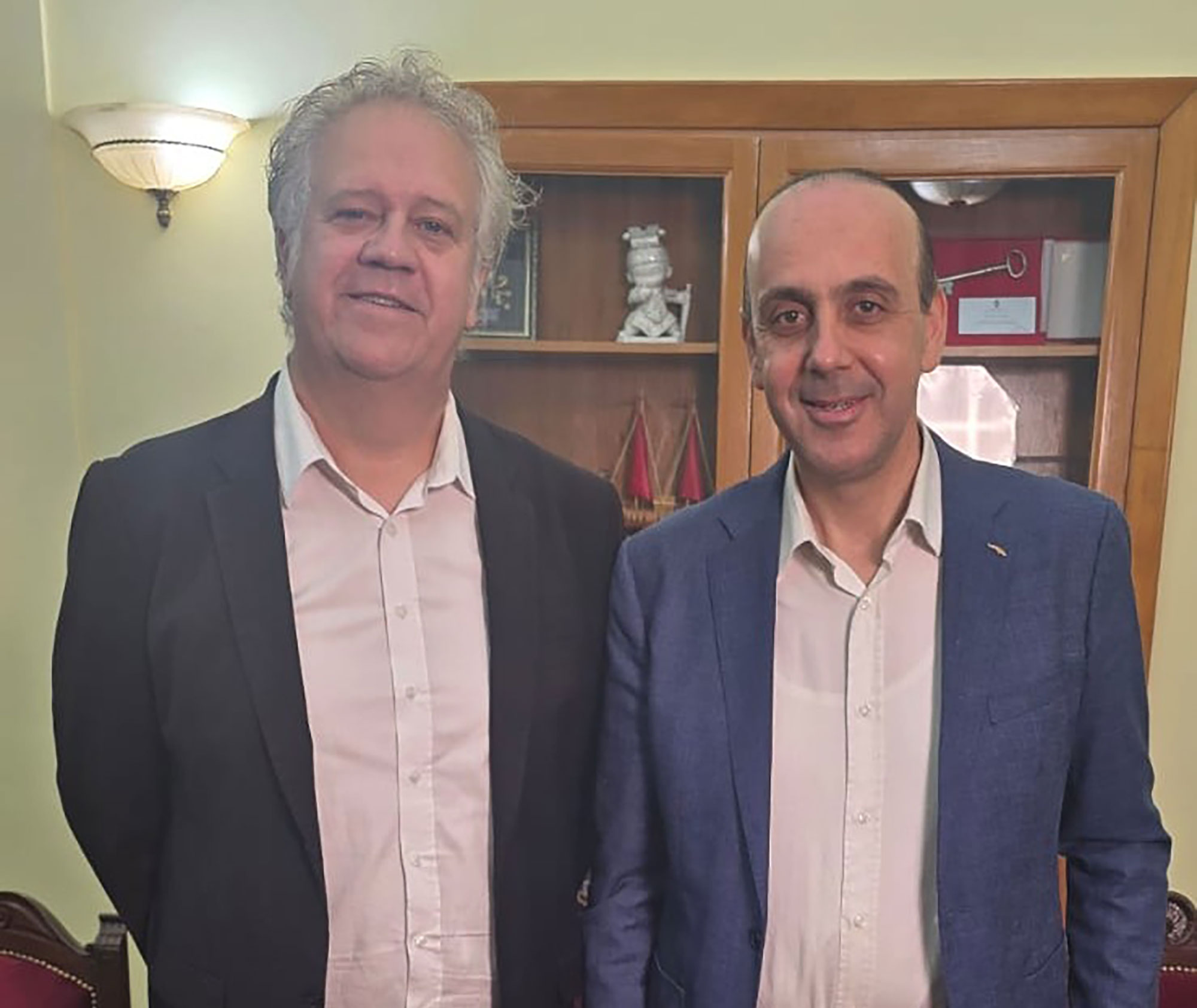The resumption of excavations and recent findings at the ancient Hellenistic–Roman theatre of Nea Paphos were discussed on Friday between Phedonas Phedonos, mayor of Paphos, and Craig Barker, professor at the University of Sydney.
As part of the Paphos Theatre Archaeological Programme, the two discussed ways to highlight the site’s importance and to resume excavations – the first since 2023.
“The aim of the programme is to uncover, document and showcase one of the most important monuments of ancient Cypriot and wider Hellenistic cultural heritage,” the municipality said in an announcement.
Excavations at the site have been ongoing since 1955 under the auspices of the Department of Antiquities of Cyprus. The theatre was in use for more than six centuries, from its construction around 300 BC until its destruction by an earthquake in 365 AD.
Initially used for dramatic performances, the theatre was later adapted during the Roman period into an arena capable of being flooded for water spectacles.
The 2023 excavation, conducted between April and May, revealed one of the site’s most significant finds to date – the remains of a ‘royal box’. This centrally positioned seating area was designed to offer shade and greater comfort during performances.
An earlier excavation in 2019, involving more than 70 archaeologists, specialists and students from Australia, uncovered several ancient and medieval monuments.
A series of trenches revealed a paved Roman road south of the theatre. Measuring more than eight metres wide and featuring a sophisticated drainage network, the road would have served the north-eastern gate of the ancient city.
In addition to that, wheel ruts indicated that the ancient road was used by vehicular traffic as well as pedestrians, while a second road was found constructed from limestone, it played a pivotal role in infrastructure and population movement.
Phedonos and Barker discussed the progress of the excavations, recent findings and the possibility to further highlight and utilise the site.
Phedonos expressed his appreciation for the university’s long-term contribution to uncovering and interpreting the history of Paphos. Barker, in turn, thanked the municipality for its substantial support and commitment to showcasing the site, saying the excavations enhance the cultural visibility of both Paphos and Cyprus internationally.






Click here to change your cookie preferences